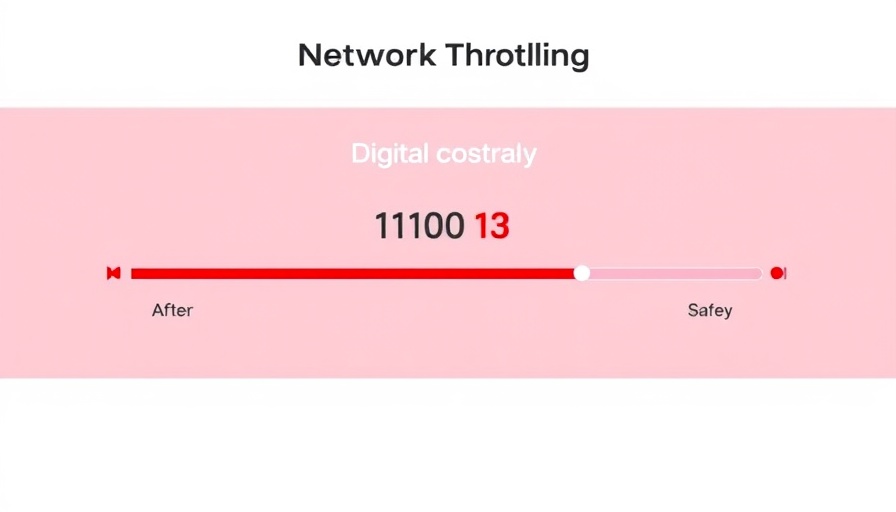
The Throttle Effect: Understanding the 16KB Limit
Since June 9, 2025, Russian Internet Service Providers (ISPs) have executed a bold and disruptive strategy: limiting access to services like Cloudflare by capping traffic at a mere 16 kilobytes per connection. This restriction severely hampers online functionality for users in Russia, rendering them unable to access a significant portion of the internet. Cloudflare, a leading content delivery network, acknowledges that this limit compromises the ability of users to navigate websites effectively, thereby impacting various sectors, including digital marketing.
Why Are Russian ISPs Implementing These Restrictions?
Several Russian ISPs, including Rostelecom and Megafon, seem to be deploying this throttling to push users away from Western technologies. This goal aligns with a broader political strategy to control internet access and reduce dependency on foreign services. The move suggests a shift towards fostering homegrown alternatives, all while attempting to combat VPN usage and other circumvention tools. Such insights reveal not just technical adjustments but a more significant ideological battle over information access.
The Technical Breakdown: How the Throttling Works
Cloudflare's analysis indicates that ISPs have introduced sophisticated blocking mechanisms to maintain a basic level of connectivity while crippling website functionality. For instance, the 16KB threshold is strategically set to allow only the initial loading of a page's data, which is insufficient for most online activities. Monitoring data points to a spike in connection resets for TCP protocols and increased errors within QUIC connections, showcasing the technical complexity behind these limitations.
The Broader Implications for Internet Usage in Russia
The throttling isn't just an inconvenience for users—it represents a critical shift in access rights and internet freedom. With around 20% of the internet being affected, businesses engaging with Russian consumers will face severe disruptions. The implications stretch beyond mere inconvenience; they touch on digital marketing strategies and content delivery, reshaping how companies approach the Russian market. Thus, users and businesses must consider adapting to a drastically changing landscape.
What Can Users Do Amid Throttling?
For homeowners and renters who might be struggling with these changes, it's vital to explore alternative internet solutions. One approach is to look for ISPs that offer uninterrupted access or consider using VPNs that might still function in this throttled environment. Researching providers or services that prioritize internet neutrality could offer some respite against these restrictive practices.
This implementation of throttling by ISPs opens up a formidable conversation about digital freedoms, necessitating vigilance from users and discussions about technology dependency. Local alternatives may rise from the ashes of this throttling, but their efficacy remains to be seen.
 Add Row
Add Row  Add
Add 

 Add Row
Add Row 


 Add Element
Add Element 

Write A Comment